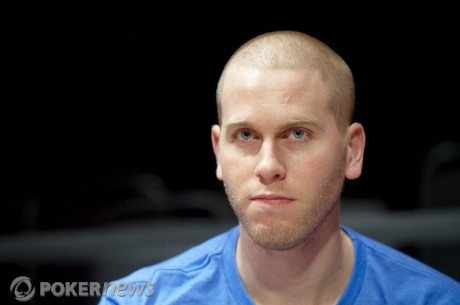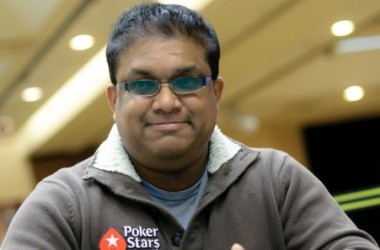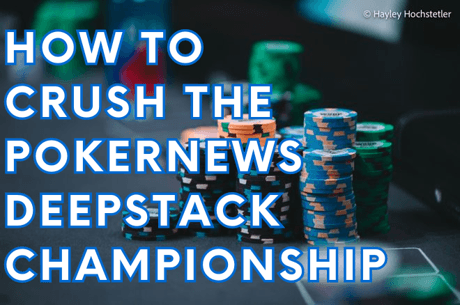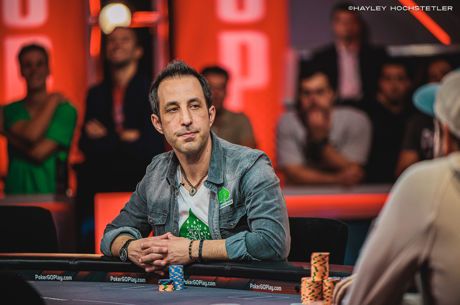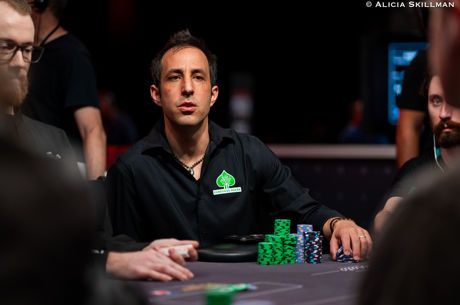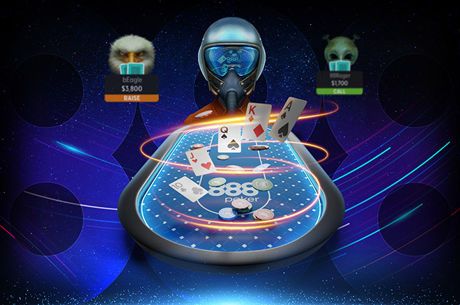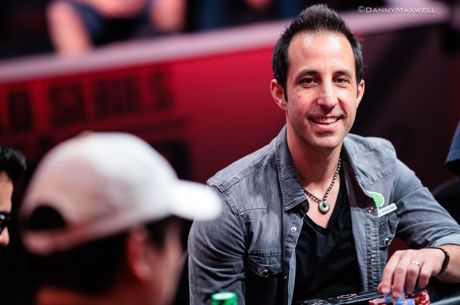Tournament Hand Analysis with EPT Berlin Winner Ben Wilinofsky

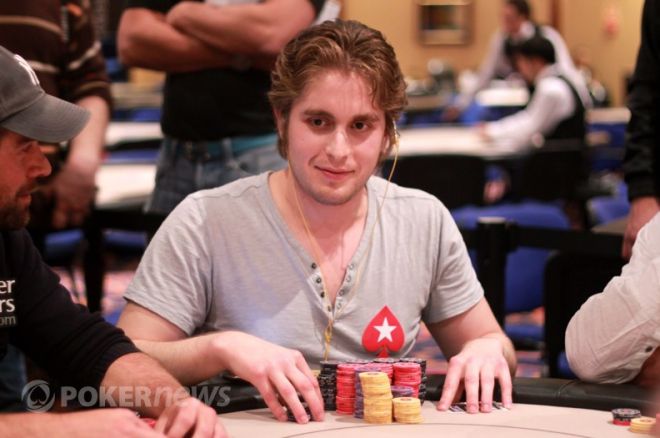
Ben Wilinofsky is a 22-year-old online and live poker pro who has already accumulated more than $2.1 million in winnings. In April, he took down the PokerStars European Poker Tour Berlin event for nearly $1.2 million after defeating a field of 773. Here he discusses a pivotal hand he played on Day 3 of EPT Berlin and explains how he used a nonstandard play to win the hand.
Blinds: 15,000/30,000 with a 3,000 ante
Stacks: Villain - 1.5 million; Wilinofsky - 2.25 million
Preflop Action: Villain raised under the gun plus one to 80,000. It folded around to Wilinofsky in the big blind. He called with A♦6♦.
At the time, I had conflicting information about him [Villain]. I had played with him late on Day 3, and he had been very tight. But early on Day 4, he had been very aggressive on my left. I thought his plan coming into the day was probably to be very aggressive out of the gate and slow down when that image caught up with him a little bit.
Why did you decide to defend, and did you think about three-betting?
I didn't think about three-betting for very long. I usually consider all three options, but he made a minimum raise from early position. Since he raised in early position, he probably has a strong enough hand to flat or four-bet with, a decently high percent of the time. If he flats and we get to a flop, I'm going to be out of position with a hand I'll have trouble value-betting when I don't make better than one pair. I decided it was best to just take a flop getting something like 3.5:1 immediate odds.
Flop Action: The flop came 9♥3♣2♣. Both players checked.
When he decided not to continuation bet the flop, how did that narrow his range?
I thought it narrowed his holding to probably something in the middle of his range. This means that either he doesn't have a strong enough hand that he wants to play a big pot with, or he doesn't have a hand so weak he feels he has to bet to get me to fold a lot of weak hands I could have that he doesn't beat. I didn't think he'd ever have sets, flush draws, overpairs, or a strong nine. I expected him to have pairs worse than a nine sometimes, weak nines rarely, and ace-high a fair bit.
Turn Action: The turn was the 4♣.
It's a tricky card, because a lot of those hands in the middle of his range improved significantly. His ace-highs picked up a gut shot, and those with big clubs had a very strong draw. It also isn't really a terribly scary card for his one-pair hands that he may have checked back, like pocket sixes or sevens.
So did that incline you to check again?
Oh, no, don't be silly. I overbet the turn. Basically, on this turn, Villain's range is capped by his flop check. He's very unlikely to have sets, straights, or flushes, and I can have all of those. I expect him to continuation-bet most of the hands that could have those on the turn except exactly pocket fours.
Interesting. Does your bet size fit in with the range you are representing because you would or could bet that much for tricky value into hands that have a lot of equity?
I don't know that I would, but Villain doesn't know that I won't, so it doesn't really matter. I'm just forcing him into a position where he has to be very uncomfortable with every hand in his range deep in big, live tournament. I can have a lot of hands that are all better than the best hand in his range, so I definitely could bet very big with a wide range for value.
The most important thing, though, is that we're deep in a big, live tournament. These opportunities don't come along very often and Villain is going to be hesitant to make a big, heroic call down for a huge portion of his chips. If he calls and the river blanks off, I can make some really big bets that probably fold every hand he can have except for exactly pocket fours.
What were you thinking as far as bet-sizing for the river had he flatted the turn?
I think when I choose this sizing that he's much more likely to fold a hand like pocket sevens with no club and call with a hand that has the A♣ or hand with an ace in it with the K♣ or Q♣, so I was definitely check-folding clubs. On blanks, my plan was to bet 725,000. I think I'd probably choose about the same sizing on a five, which improves me to a straight to the six and improves most of his hands to a straight to the five. I think he's very unlikely to fold when he improves his hand to something that strong and knows his range contains no flushes.
An ace is a really interesting card, and I'm genuinely not sure what I would have done. I don't think it really improves me to the best hand all that much, but I'm also not sure that I can fold his better hands. If I do bet an ace as a bluff, I think it will have to be bigger than 725,000. I'd probably bet closer to 855,000. I'm probably betting the same size on queens or kings. I might go bigger to like 810,000, but on tens, nines, eights, sevens, sixes, fours, and threes, 725,000 is enough.
I think on river aces, kings, and queens, I want to choose a sizing that puts him in the range of 14 big blinds if he calls and is wrong because that stack size sucks. He's going to make some tight folds to maintain his flexibility, so the numbers in the low 800,000s probably get the job done a significantly higher percentage of the time than do the ones in the low 700,000s, which leave him with about 20 big blinds. I'll only risk the extra chips if I think he's likely to have improved his hand and needs some extra convincing to fold it.
Remember, follow us on Twitter for up-to-the-minute news.

